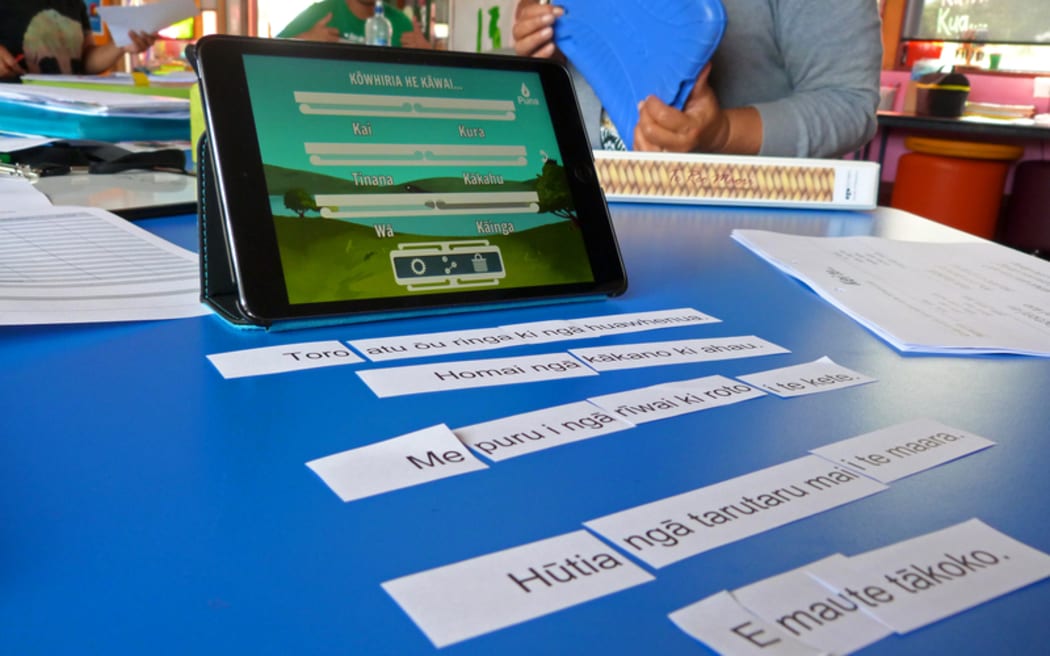A group representing Māori economic interests is concerned about a poll showing a preference for schoolchildren to learn Chinese.

A file photo shows an app being used to teach Māori in a New Zealand school. Photo: RNZ / Tom Furley
The Asia New Zealand Foundation survey, released today (PDF, 5.1MB), found eight out of 10 people thought New Zealand students should learn a language other than English, and more than half of those chose Chinese - ahead of te reo Māori.
Fifty-three percent of those who backed another language said Chinese should be taught. Forty-one percent picked te reo Māori, and about 20 percent selected French, Japanese and Spanish.
Asia New Zealand Foundation executive director Simon Draper said language learning would help create global citizens who could strengthen relationships with geographic neighbours.
"We'll miss out on valuable opportunities in the region if we don't have the confidence to engage and build relationships there."
Federation of Māori Authorities chair Traci Houpapa said the report highlighted the importance of culture as a keystone in terms of trade and export.
She said the Māori economy was valued at $42-43 billion, and it was important for New Zealanders to recognise Māori culture was a distinguishing factor for relationships with Asian trading partners.
Every child should be learning te reo Māori at school, she said.
"It is important that New Zealanders, while they have a commitment to learning and becoming more au fait with the Asian market, that they also have the same commitment and impetus and interest in learning te reo Māori me ōna tikanga and kawa (language, practices and culture)."
The Ministry of Education spent $1.5 million supporting the teaching of Asian languages including Chinese in English-medium schools in 2015.
In comparison, it spent $4.2m to support te reo Māori in English-medium schools that year.
The Asia New Zealand Foundation's annual survey was based on a random group of 1000 New Zealanders, who were interviewed between July and August 2016.






